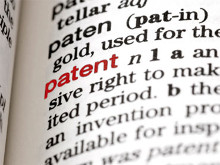Some patents become less troll friendly

In one small step for patent law interpretation, one giant leap forward for patent sanity, the Department of Justice (DoJ) has agreed to let the Institute of Electrical and Electronics Engineer (IEEE) new Standard Association (SA) patent policy stand. This new policy, in turn, will reduce the cost of fair, reasonable, and non-discriminatory (FRAND) patents and make it far harder for patent holders to sue others using these patents.

(1) It will make a license available, without compensation, for its essential patent claims, to an unrestricted number of applicants for uses implementing the standard;
(2) It will make a license available for its essential patent claims "under reasonable rates, with reasonable terms and conditions that are demonstrably free of any unfair discrimination," to an unrestricted number of applicants for uses implementing the standard;
(3) It will not enforce its essential patent claims against any person (or entity) complying with the standard; or
(4) It is unwilling or unable to license its essential patent claims without compensation or under reasonable rates, or to agree that it will not enforce those patent claims.
Most of companies have opted for number four in which the FRAND patent would be licensed "under reasonable rates." That phrase was the crux of the problem: What was a reasonable rate?
Under this newly approved ruling, a reasonable rate "shall mean appropriate compensation . . . excluding the value, if any, resulting from the inclusion of [the patent claims] technology in the IEEE standard." While it doesn't nail down how such a rate should be determined, "This provision reduces the possibility that a patent holder that has made an IEEE RAND Commitment could hold up implementers of a standard and obtain higher prices (or more favorable terms) for its invention than would have been possible before the standard was set."
Read this
The DoJ concluded that "that the Update has the potential to benefit competition and consumers by facilitating licensing negotiations, mitigating hold up and royalty stacking, and promoting competition among technologies for inclusion in standards." In short, products incorporating IEEE standard technologies should become cheaper and they'll be subject to fewer patent lawsuits.
At the same time, Andrew Updegrove, a world-recognized standards expert and founding partner of the law firm Gesmer Updegrove, said in an e-mail interview that this new ruling forbids "members subject to FRAND licensing pledges from seeking an injunction until all other remedies have been exhausted. While the rules will not be binding on any entity that is not an IEEE-SA member (such as patent trolls), the obligations will bind later owners of the patents in question."
Updegrove continued that while this decision will have "no immediate effect on patent trolls at all ... there will be knock-on effects of two types. First, when a non-practicing entity (NPE, aka a troll) buys new patents from IEEE members that were involved in creating a standard, the NPE will be bound by the same limitation, because other changes being that are also being made across the board in most SSOs [Standard Setting Organizations] make it explicit that licensing pledges will run with a patent when it is transferred."
Further, "if other SSOs follow IEEE's lead, the number of essential claims subject to similar restrictions will grow. This may result in NPEs becoming less interested in patents that incorporate essential claims, because while the number of potential licensees may be very large, the NPE's bargaining leverage will be lowered in two respects: the upper limit they can bargain down from will be lower, and the nuclear option of an injunction will be off the table."
"If other SSOs adopt the same rule, according to Updegrove, it will be much less likely that we'll see future episodes like the mobile platform patent wars of recent years [in which]Apple, Microsoft, Samsung, Motorola and the rest of the major vendors sought injunctions against each other to prevent their competitors from selling their products. The suits were often based on claims that a vendorhad refused to pay a reasonable royalty on a "standards essential patent."The resulting litigation clogged up the courts."
We can only hope that this proves to the case, as patent cases slowly move us to a point where patent trolls are the exception instead of the rule.
For more on the the legal details, see Updegrove's Dept. of Justice Blesses IEEE Rules on Injunctions and Reasonability blog posting.
Related Stories:
- Apple sues Ericsson over LTE patents, Ericsson sues back
- IBM tops list of US patent recipients, again
- ITC opens investigation in Samsung, Nvidia patent battle
- Rockstar deal could mark end to long patent war between Google, Microsoft, Apple, and others
- Samsung fires another shot at Microsoft in Android patent battle